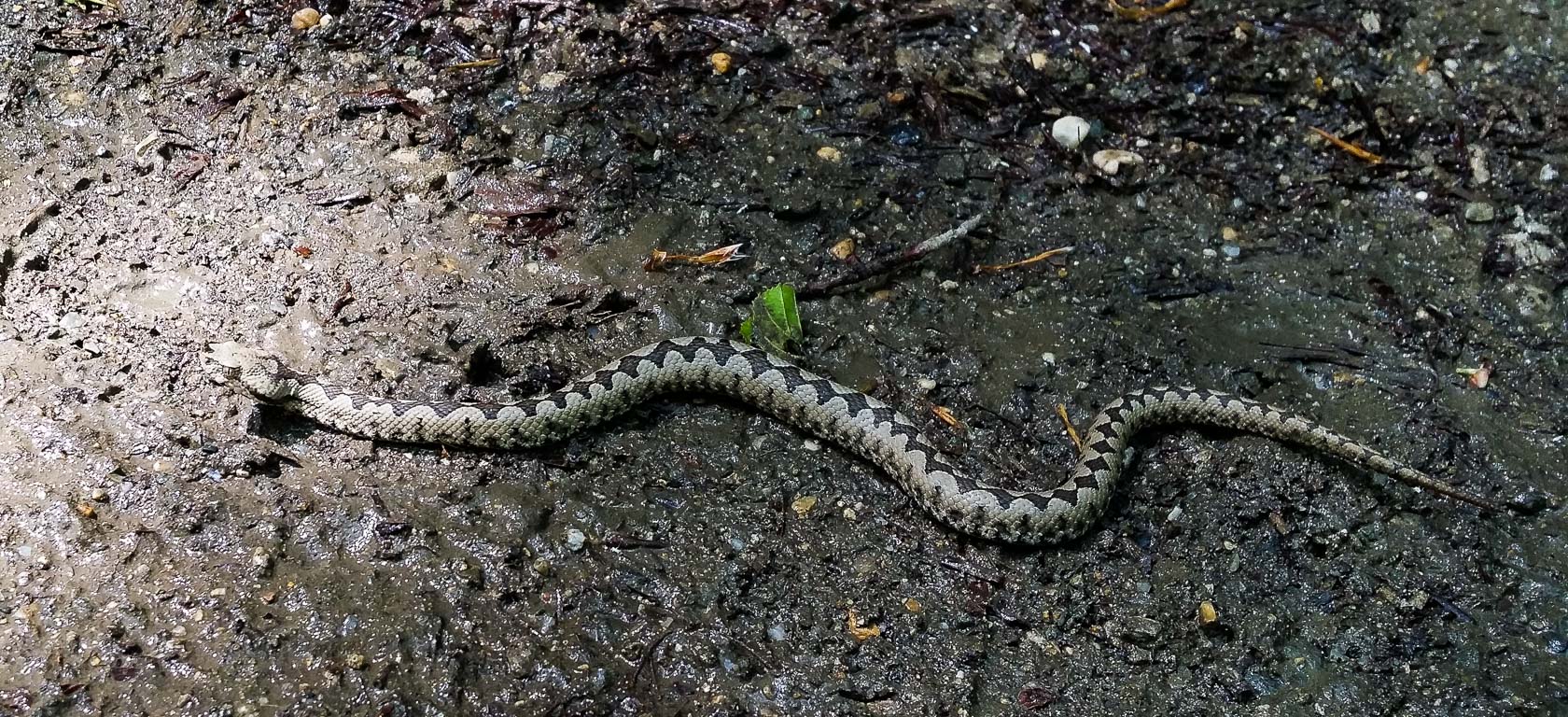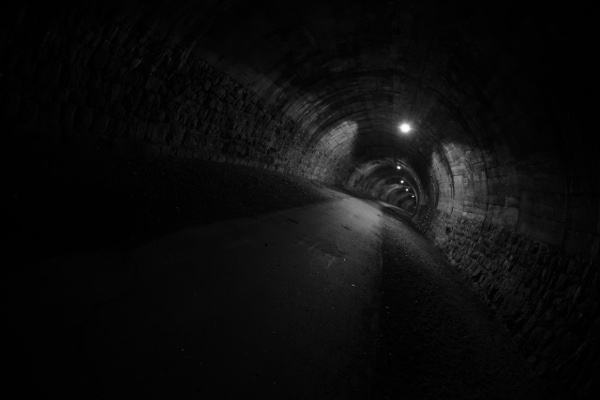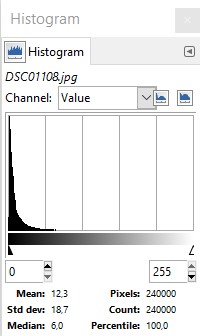Whenever there’s a political/military crisis, like that current one with Iran, YouTube starts recommending survival, prepping, EDC and similar videos, as if the level of freaking out in the general population had temporarily exceeded the background noise level at which it resides in normal circumstances. And it’s actually funny, because if your response to a potential world war is to buy a “survival knife” or something else “tactical” (more accurately, “tacticool”), or if you think you’ll survive a SHTF event by getting a “bug-out bag” and going to the woods, you really do have a problem.
But the EDC (every day carry) videos did make me think; what is it that I carry with me every day, and, as a corollary, what objects do I need so much that I would replace them immediately if lost or destroyed. And, as a further corollary, what is a dependency list of things one would run out of in a collapse scenario; things you would need to stock up on, or go hunting for if you ran out.
So let me go through the process slowly, because I’m usually quick to jump to conclusions and my thought processes remain unclear.
I recently had a nasty little situation. I have a habit of going for long walks in the nearby hills, on trekking roads, and there isn’t really any mobile network coverage, since the terrain is basically canyons and hills. A few kilometers in, on a steep climb, I renewed a poorly healed ankle injury. It was surprisingly nasty, because it felt as if I had a nail driven up my tibia, instead of having a foot; I couldn’t even stand on that leg. Since I couldn’t walk properly, I thought of making a crutch out of a branch or something, and then I saw that I left my Swiss army knife in another jacket. So I was few kilometers in, on steep terrain, injured, no cell coverage, and the temperature was barely above freezing. It’s a very unlikely combination of things, but that’s exactly how you get fucked, and it’s also how we get to the concept of EDC – I didn’t have my pocket knife with me at the only time in years that I actually needed it. It didn’t take a global apocalyptic event for me to possibly need to improvise a crutch, or even make a fire in the forest if I couldn’t walk and I got cold. In a few hours it would get unpleasant. I would also need water, but fortunately I always carry a water bottle with me into the woods. It never came to really being an emergency; I rested my ankle for a few minutes, discovered that it was a specific motion that aggravated the injury and learned to limp in a way that didn’t hurt, and I slowly got to the car. During that slow walk home, I decided I’ll buy enough pocket knives that I always have one with me because they’ll be in every jacket I own. That damn thing would easily solve a problem that almost happened. So, yes, my normal EDC/survival gear is very simple. A water bottle, paper handkerchiefs, a Victorinox Huntsman pocket knife, a butane lighter, an iPhone and a can of pepper spray (because of dogs and wild boars). This combination gives me tools to work with wood in an emergency, it gives me light (iPhone), fire and defense against possibly rabid wildlife; I know the normal animals are unlikely to bother me. Yes, the boars are extremely common, and I’ve seen tracks everywhere, and they actually harass people in the nearby villages, so it’s not just a theoretical danger. They roam around in large packs and the hunters don’t seem to be doing anything about it because they are protected by some law. I actually photographed a dead boar in a creek at one point.
Also, I occasionally pass by some very weird specimens of human wildlife. Nothing threatening so far, but the idea of stumbling upon a drug deal in progress with a camera in hand is very unpleasant. They might think I took a picture. You can imagine the problem. I would feel safer if I could carry a gun, but this is Croatia, and gun ownership is so regulated I actually feel safer without one, because owning it would place me on a state-maintained list I would rather not be on, if I can help it. That’s one thing where America has a big advantage; there, I wouldn’t have to explain why I’m carrying a gun in a forest full of boars and, potentially, dangerous criminals. Although, things seem to be changing there, and not in a good way.
As you can see, considering what I do almost on a daily basis, my approach to safety equipment is rather minimalistic, because my assumption is that it will always be easier to walk home or call for help than to create a shelter and make fire in an emergency; the distances are simply not that great. Also, I did encounter wildlife (foxes and deer, mostly), even at very close proximity, but nothing bothered me and was actually very happy to get away in a hurry. In theory, I could justify carrying all kinds of survival gear for unlikely emergencies, but in reality, a water bottle, pepper spray, pocket knife, lighter, lip balm, paper handkerchiefs and a phone are what I actually have with me.
What I find interesting is that some people will find my choice of things to carry excessive, while others will find it extremely insufficient. There seem to be two main schools of thought: the first is that noting bad will happen if you have pink thoughts throughout life, and the second is that Murphy was an optimist and all kinds of shit will eventually happen if you’re here long enough. I’m somewhere in the middle: there’s a matter of probability. I prepare for probable events. It’s very probable that I’ll have to blow my nose, be thirsty, have to pee, pick mushrooms or chestnuts in season, and change clothes because I’m sweaty in the summer. It’s improbable, but possible that I’ll at one point have to deal with hostile wildlife, or cut off a branch and shape it to fit my needs. It is very unlikely, but still in the realm of possibility, that I will have to light a fire and camp in the woods because I’m too injured to walk to the car, or drive, and there’s no cellphone coverage, so I’ll basically have to wait until someone stumbles upon me and walks to the point where he can call the mountain rescue service. That last one looks incredibly improbable, because I’ve been walking in those woods for literally decades, in all kinds of weather, and I never got even close to being hurt, until that situation a few days ago, when I suddenly couldn’t walk, kilometers into the woods, and with no signal on the phone, because canyon. So, basically, things never happen, until they do, and then you’re suddenly ten percent away from the worst case scenario and things were perfectly fine and routine minutes ago.
I don’t prepare for unrealistic or unsurvivable scenarios. Yes, there’s a scenario where I stumble upon a crime in progress, deep in the woods, and yes, bodies were disposed of in several cases, very close to the places where I walk, and the criminals in question might simply decide not to risk a witness and shoot me. That’s one of those “shit happens” scenarios where not even a gun would be likely to save me, and there’s no point in preparing for something that’s both very unlikely and very unsurvivable. It’s like preparing for a meteor strike directly on your house; pointless. If that happens, it means it’s your time to die and that’s it. But there’s a grey area between not preparing for extreme scenarios, and not preparing for anything. There are unlikely scenarios that can be solved with very small additions to the content of my pockets, and that’s what I’m quite willing to do. That little can of pepper spray is actually very comforting when you hear something big moving through the woods close to you. Sure, it usually turns out to be a deer in a hurry, very much minding its own business, but it could be a rabid fox going straight for my throat. I’ve seen a video of a rabid fox attack, and that was fucking scary. It doesn’t go away, it doesn’t get afraid, it isn’t deterred when you hit it, it just attacks, again and again, until it’s dead. I don’t know what a rabid boar would do, and I don’t really care to find out.
I don’t care if someone thinks I’m underprepared, or taking excessive risks. That’s fine; everybody has his own threshold of risk tolerance; some wouldn’t dare to ever go into the woods, some wouldn’t even carry water or a phone. To each his own. However, I must admit I am disturbed by those people who think that no preparations of any kind could ever be valid. Every fucking year the mountain rescue service (which BTW is excellent here in Croatia) has to get people out of trouble because they went hiking into dangerous mountain terrain with flip-flops, no water and in bad weather. Yes, they actually do that, especially the tourists of the hipster or hippie variety, who think nature is that wonderful thing that would never harm you if you only think positive.

I encountered venomous snakes of the vipera ammodytes variety on the forest path very close to where I live; they were minding their own business, as snakes do, but if I wasn’t careful and I stepped on one, it would probably have bitten me and I’d be having a serious medical emergency in a hurry. It’s unlikely to be bitten by a venomous snake here, but it still happens to someone every year. To make absolutely no preparations, for instance go into the woods without a phone or a radio of some kind, without water, poorly dressed, and alone, you are basically setting yourself up to be fucked. And there are people who do exactly that, every single year, and the rescuers have to waste money, time, effort and other resources getting those stupid urban hipsters out of trouble. Honestly, I would prefer not to be that guy. Sure, if a snake bites me I’ll call for help because walking out would actually circulate the venom faster and worsen the situation, but if I can whittle a crutch and limp myself out with a broken leg, immobilised with a splint I made on the spot with my knife, some wood and pieces of my shirt, I’m going to do it.
OK, let’s return to the original point I was trying to make. There’s no point in preparing for unsurvivable scenarios, such as a full nuclear exchange between superpowers, or a KT-type extinction event. If that happens, oh well. However, before the last regional war there were old people who had the second world war in living memory, and they prepared for a possible war by having well stocked and protected basements, and young people made fun of them, because “everybody knows” there’s not going to be a war. When the war actually broke out, and there was no food and heavy metal was falling down from the sky, those same young people were very happy that grandpa had canned food and a well built basement to use as shelter when shit hit the fan. So, yes, there’s a very thick grey zone between “nothing happens” and “there’s a nuclear war and everybody dies”, and some reasonable preparations can greatly mitigate the worst outcomes. For instance, if there’s a regional war and you have gold bullion stored, you can take it and run, and you didn’t lose everything, you don’t have to start anew from zero. If there’s an earthquake and water is contaminated by raw sewage, if you have water purification equipment and chemicals, and if you have containers for storing water, you’re in a much better position than everybody who doesn’t. If there’s a fire and you have a fire extinguisher handy, you might be able to solve the problem yourself and with minimal damage, instead of losing your home and possibly your family members.
But then there are those people who think that, if shit hits the fan, they’ll take a “bug-out bag” full of “survival gear” and head into the woods and “live off the land”. That kind of thinking is actually more dangerous than not preparing for anything at all, because they are actually increasing the probability of a bad outcome with their “prepping”. In an emergency scenario, the woods are the place where you go to die. Your greatest probability of success lies in pooling resources with neighbours and organizing something on a community level, not in collecting “tacticool” knives and fire rods from Amazon. What you need to do is stay put, stay informed, and organize or join a community effort. That’s where reasonable preparations pay off: someone will have means of purifying water. Another will have canned food in store. Someone else will have antibiotics and bandages. Another will have insulin injections. And some will have weapons. Pooled together, this creates something that is actually likely to get you through the initial wave of shit, and to the point where the outside help starts coming. But if there is no outside help, if everything is affected or destroyed, you must realize that your chances are slim to none. Still, you must realize that “tacticool” equipment is most likely a waste of money and a psychological crutch. It’s a substitute for actual preparedness. Get out of immediate danger. Shelter. Water. Food. Medical equipment. Defense. Those are the priorities. It’s completely unlikely that you’ll be able to make it through on your own, so pooling resources with others is your best chance; however well equipped you think you are, you will have to sleep, you might get sick, you might lack some critically needed resource, and you will lose control and die. But if you share your stack of food and other resources with others, it is true that it will last shorter, but it’s also true that you will thus gain others who will stand guard while you sleep instead of waiting for you to fall asleep so that they can kill and rob you, and if there’s something you need, someone will probably find it somewhere.




